Today's demand for AC units has been vastly rising regardless of whether you're buying a replacement or one for the first time. But, you often ask yourself whether a Mitsubishi air conditioner dehumidifies. You're a moment away from knowing the answer to this topic, as we have the answer below!
Generally, Mitsubishi AC units can dehumidify your home as long as you set the system to cooling mode. However, there might be a case when the impact is not that effective, so that's something to consider before purchasing.
Knowing that Mitsubishi can surely dehumidify your home. You might also want to know some basic queries that most people have. So stay tuned because there's a lot to learn from this topic. With that said, let's dive right in!
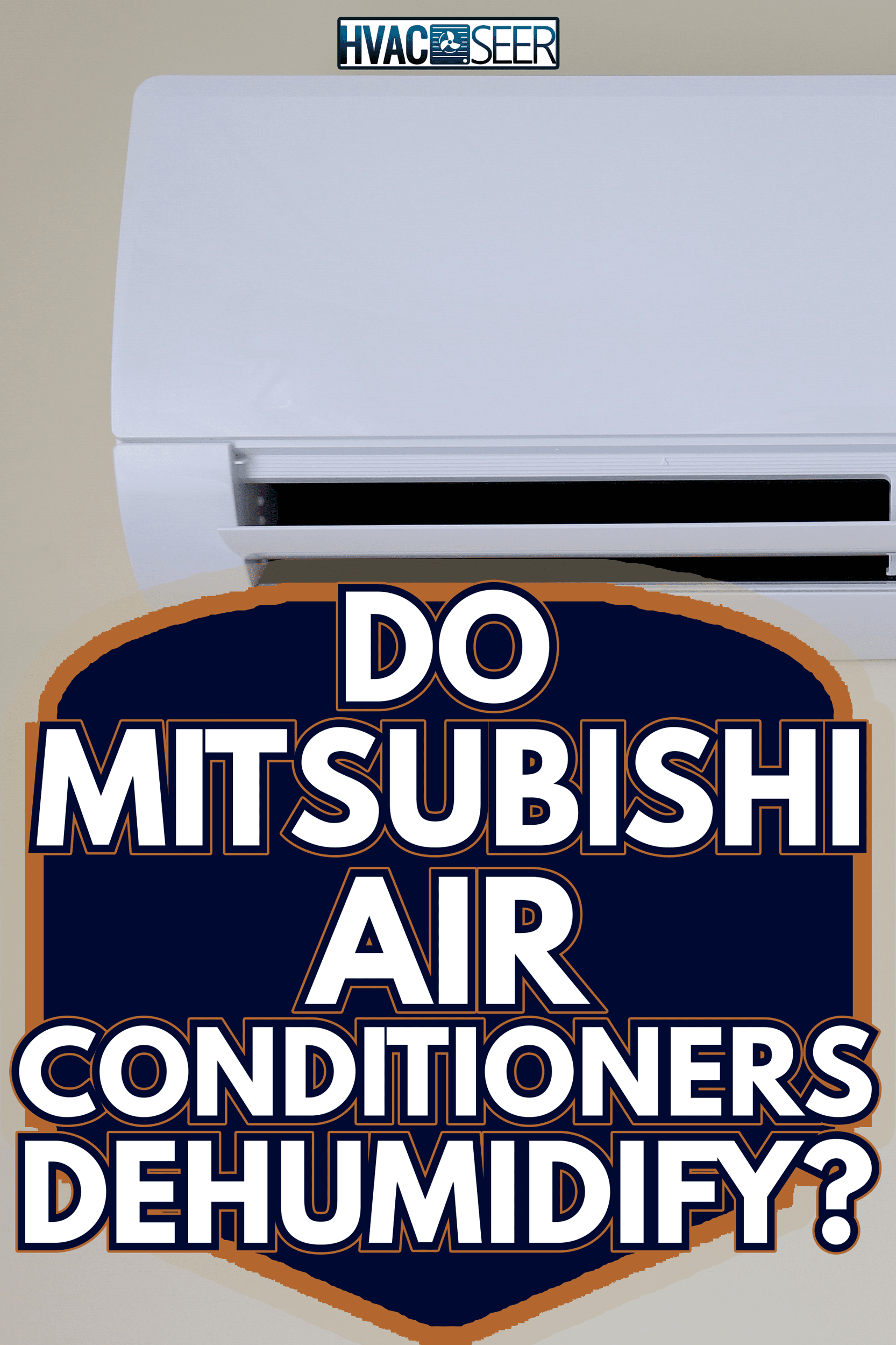
What Is The Ideal Humidity In A House?
The amount of moisture vapor floating in the air around you is measured as Relative Humidity (RH). It's still there, even though you can't see it.
Between 30 and 40 percent, relative humidity is optimum for health and comfort, especially in winter.
In contrast, the air may store between 50 and 60 percent of its maximal moisture capacity during summer.
What Are The Signs Of Poor Humidity?
It's vital to have the correct amount of moisture in your home's air to achieve the best and create the ideal environment.
Here are some indicators that the humidity level in your home is causing you discomfort:
Sleeping Issues
When the air is overly humid, your body has to work harder to cool itself by evaporating sweat. As a result, falling and staying asleep may pose problems, especially for children.
Feeling Tired
You can't seem to quit sweating in your own home. When you're always sticky and drenched in sweat, it might be exhausting. If you experience this, the humidity is likely too high in your house.
Difficulty Breathing

You're having trouble breathing. High humidity levels in the home can trigger asthma symptoms, including chest tightness and wheezing.
Low humidity levels can potentially cause a variety of respiratory issues.
Musty Odors
Mold could be forming on your walls and ceilings if they are discolored. You may be able to detect the distinct musty stench of black mold growing even if it is hidden.
Because mold and mildew grow in high humidity, we recommend that you take immediate steps to reduce your indoor humidity.
How Long Should AC Run To Dehumidify?
Considering outdoor weather conditions and thermostat settings, it's not unusual that specific air conditioning cycles this summer may last longer than 15-20 minutes.
The most vital point is that you remain at ease. You should be fine as long as your air conditioner achieves the desired temperature in a fair amount of time.
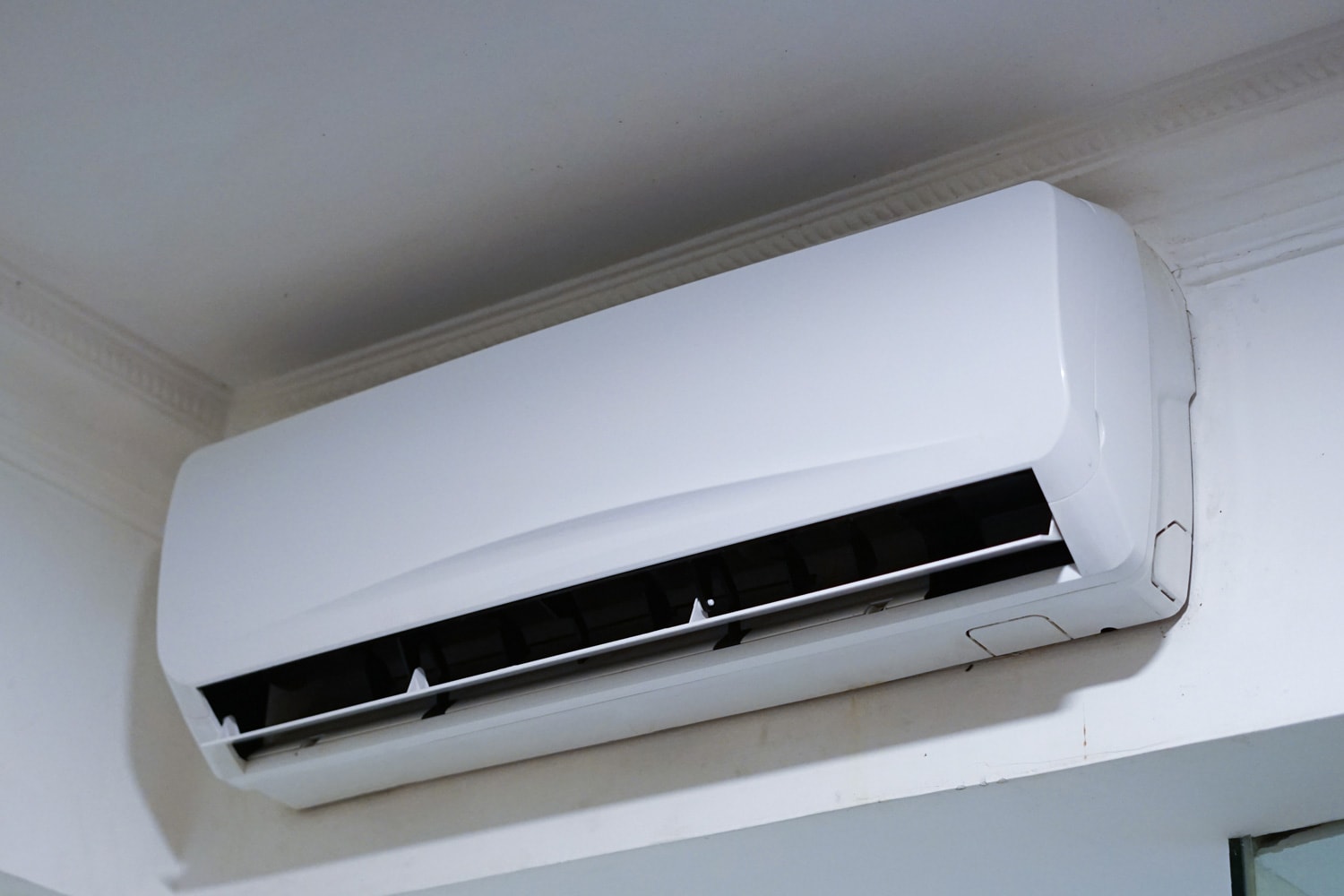
What’s The Difference Between An AC And Dehumidifier?
How Do They Work?
Air conditioning removes heat and keeps air humidity in an enclosed space to achieve a more comfortable indoor environment.
A dehumidifier reduces and maintains the level of humidity in the air to remove musty odor and prevent the growth of mildew by pulling water from the air.
What Are Their Purpose?
The primary purpose of AC is to extract heat from an area, whereas dehumidifiers are to remove excess humidity.
Water Draining Method
AC lets the water gathered from the condensation on the cold coils drip outside or evaporate it on the hot coil. In contrast, the dehumidifiers need to drain manually, or it needs to be linked to the plumbing drainage system.
Addressing Comfort And Health
The air conditioner maintains a pleasant, comfortable temperature, while the dehumidifier protects health by preventing mold growth.
Can I Use My Air Conditioner As A Dehumidifier?
An air conditioner can be one good option to manage humidity aside from a dehumidifier. The feature provided by evaporator coils is their process of causing moisture to condensate and exit the air.
When an air conditioner circulates warm air and pushes cold air throughout your home, it does remove moisture from the air at some point.
But it will not remove humidity as close as a dehumidifier does because it is not its primary duty.
Do I Need A Dehumidifier If I Have Air Conditioning?
Generally, yes, because of the bond between heat and moisture, your central air conditioner requires an ally to perform even better in your home.
Also, a dehumidifier makes it easier for your AC unit to remove moisture, and it allows your air conditioner to cool your home faster.
Is Mitsubishi Dry Mode The Same As A Dehumidifier?
Technically, they both serve the same purpose, but they're entirely different. While the "DRY MODE" is a unique setting among the different modes of an air conditioner.
It's best to utilize the "DRY MODE" during the rainy period, especially at night when moisture is particularly high without the natural heat from the sun.
Moreover, chilling at a low speed, an air conditioner dehumidifies the air. On the other hand, a dehumidifier solely helps eliminate moisture from the air.
See this Mitsubishi other modes explanation on YouTube:
Mitsubishi Dry Mode Advantages
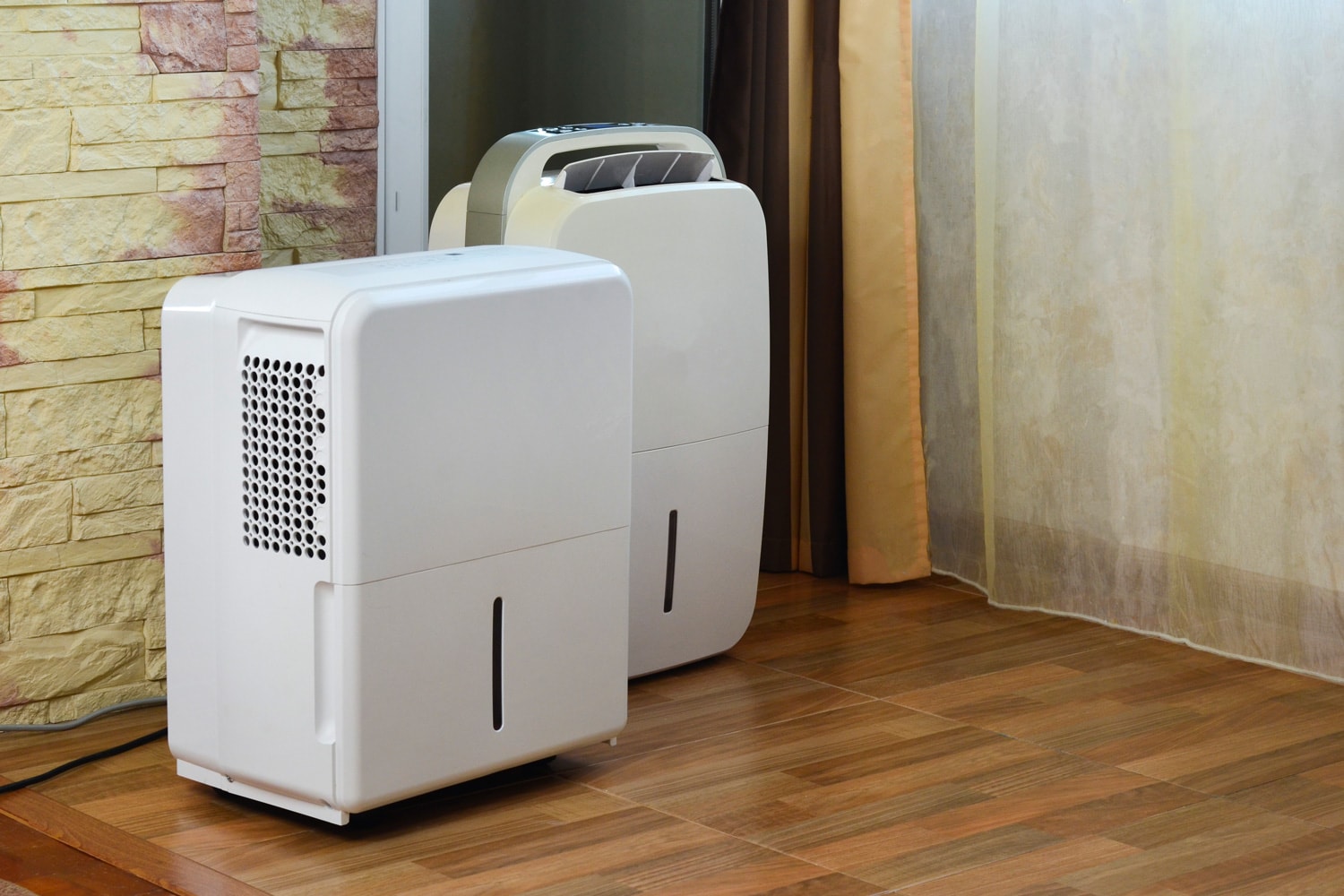
Helps Maintain Ideal Humidity
Dehumidification helps you and your family breathe easier by maintaining optimal humidity levels.
The dehumidification process also helps fight air pollutants such as mold and mildew, which thrive in overly humid settings.
Creates A Comfortable Temperature
Using the dry mode of your air conditioner instead of the cool mode can lower humidity levels in the room, resulting in a cooler real-world temperature.
Because of the lower humidity, the temperature can feel a few degrees cooler than it is.
Prevents Humidity Damage
The dry mode lowers humidity, which protects your home appliances and furniture. Mold and fungi cannot develop in low humidity, which might cause damage to your furniture.
Mold and fungi can also affect indoor air quality. Therefore preventing their growth is always a great idea.
Removes Odors
Mold and fungal development frequently cause unpleasant scents when humidity levels are high. You may eradicate unpleasant odors and provide fresh indoor spaces by dehumidifying the air.
Is Cost-Efficient
When the cool mode isn't required, switching to the dry mode can help save money. You'd get rid of moisture, the air would feel colder, and the air conditioner would use less energy.
Is It Cheaper To Run AC Or A Dehumidifier?
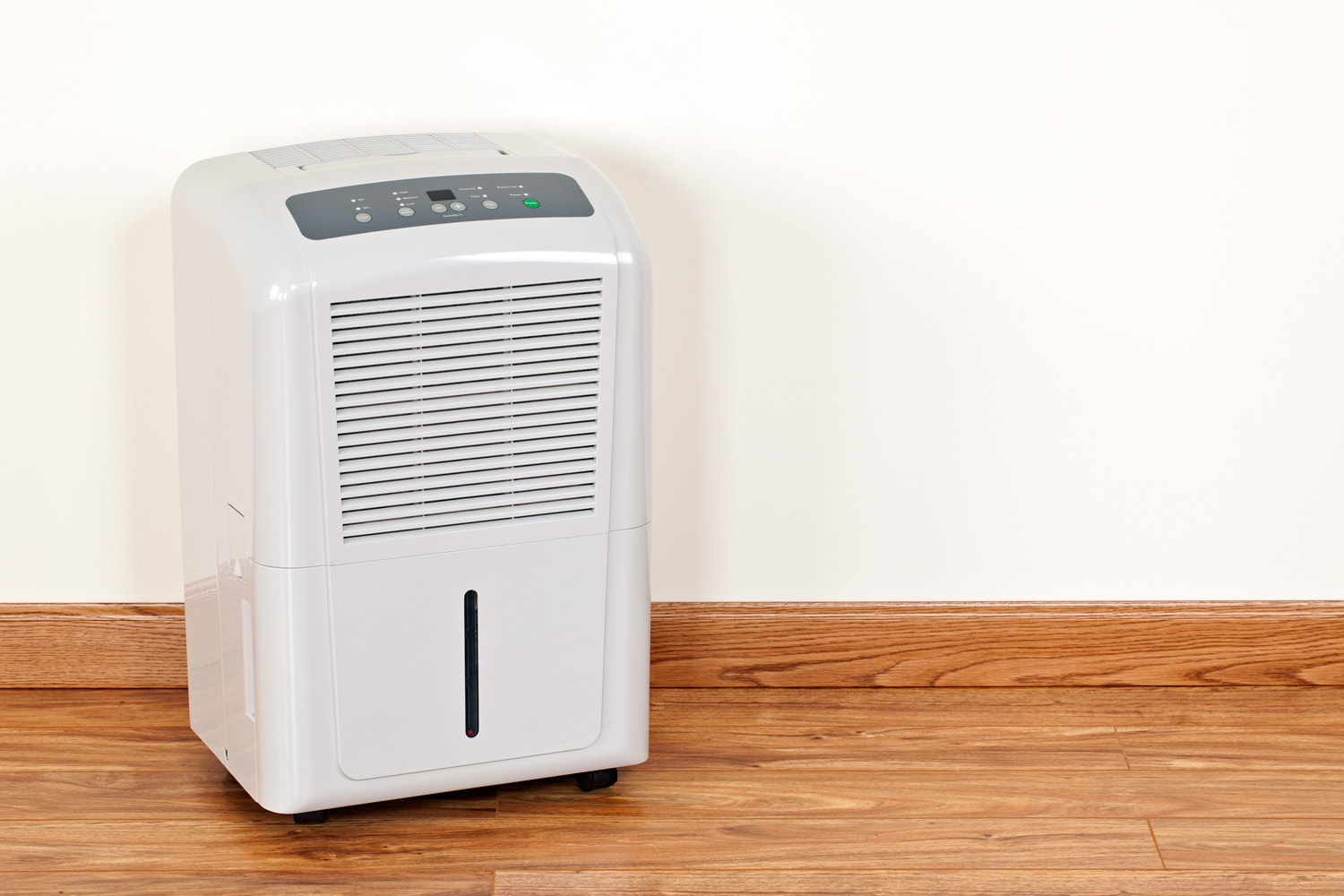
Dehumidifiers utilize less electricity than air conditioners. Their fans no longer have to work as much as AC units, and their refrigerant system isn't built to reach as low temperatures as AC units.
As a result, running an air conditioner costs more electricity than running a dehumidifier, which removes the same amount of moisture from the air.
The ENERGY STAR states that their dehumidifiers consume less energy without sacrificing quality, features, or pleasure while reducing carbon emissions.
An ENERGY STAR dehumidifier removes the same moisture as a typical machine while using roughly 15% less energy.
Do Split System Air Conditioners Dehumidify?
Split system air conditioning units offer humidification, dehumidification, ventilation, and air purification. What's more, it uses high technology to deliver adequate cooling and heating in your home.
During the summer, mini-split systems can dry some of the extra moisture. Sadly, they are not meant to dehumidify in the winter and will not pull water.
To remove excess moisture, dehumidification should operate independently of cooling systems.
Without an additional accessory, mini-split systems cannot measure relative humidity, making their control extremely minimal.
How Can I Lower The Humidity Without A Dehumidifier?
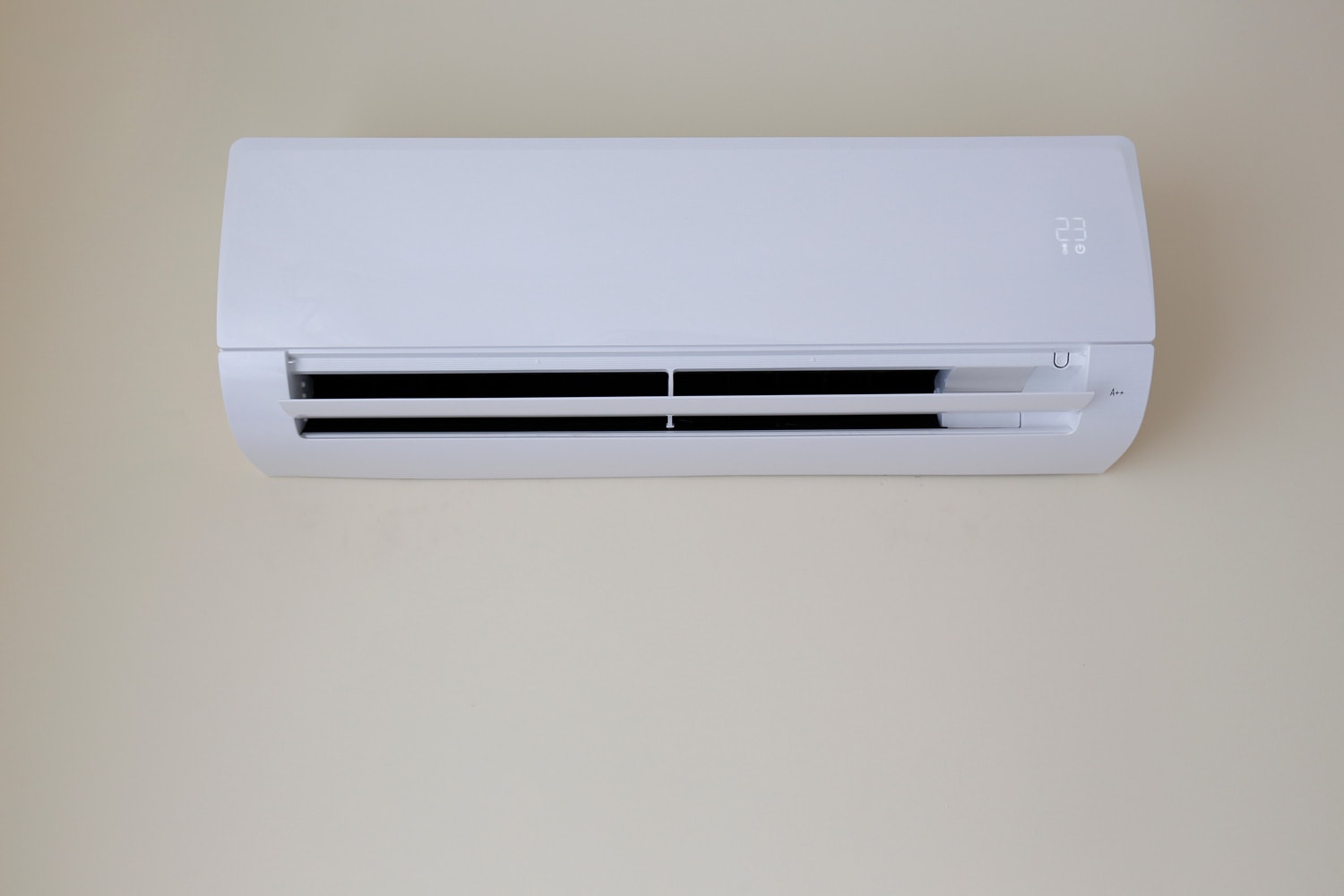
High humidity levels can make it difficult to relax. Furthermore, it raises the likelihood of fungus or mold blooming in your home.
Without having a dehumidifier, here are three best ways to reduce humidity in your house:
Open Your Windows
It may seem odd to open windows when it's humid outside, but keeping the air flowing will prevent moist air from resting in your home.
Utilize Your Fans
Opening windows has a comparable benefit to fans. They keep the air flowing in your home and stop it from becoming trapped.
Take Your Plants Outside
Generally, plants are great for your home's interior air quality and a cozy indoor environment. However, they emit moisture into the air, resulting in high humidity levels in your home.
Carrier Vs. Mitsubishi Mini Split: Which To Choose?
